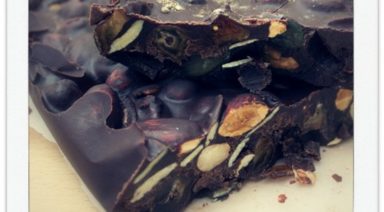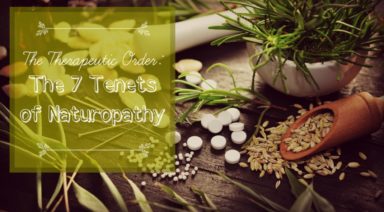The Health Benefits of Avocado

Fruit for Thought: Avocado
Yes my friends, Avocado is a fruit.
Botanical name: Persea Americana; also known as “alligator pear”.
Native to: Central Mexico, classified in the flowering plant family Lauraceae along with cinnamon, camphor and bay laurel. The oldest evidence of avocado use was found in a cave located in Coxcatlán, Puebla, Mexico, that dates to around 10,000 BC. The word “avocado” comes from the Spanish aguacate which in turn comes from the Nahuatl word āhuacatl [aː’wakat͡ɬ], which goes back to the proto-Aztecan “pa:wa” with the same meaning.
Description: Commonly referred to as a fruit (botanically a large berry that contains a single seed of the tree). They have a rough thin outer shell, a green creamy and fleshy body that may be pear-shaped, egg-shaped, or spherical. They ripen after harvesting, same as bananas. Trees are partially self-pollinating and often are propagated through grafting to maintain a predictable quality and quantity of the fruit. The tree grows to 20 m (66 ft).
Avocados are packed with disease-fighting antioxidants, nutrients and heart-healthy compounds.
Top 10 Benefits of Avocados:
1. Avocados are packed with carotenoids
Avocados are a great source of lutein, a carotenoid that works as an antioxidant and helps protect against eye disease. They also contain the related carotenoids zeaxanthin, alpha-carotene and beta-carotene, as well as tocopherol (vitamin E). Research has found that certain nutrients are absorbed better when eaten with avocado. In one study, when participants ate a salad containing avocados, they absorbed five times the amount of carotenoids (a group of nutrients that includes lycopene and beta carotene) than those who didn’t include avocados. Carotenoids are lipophilic (soluble in fat, not water), so eating carotenoid-packed foods like fruits and vegetables along with monounsaturated-fat-rich avocados helps your body absorb the carotenoids. Easily done, slice it and serve on top of any dish!
2. Avocados can help you lose weight
Half an avocado contains 3.4 grams of fibre, including soluble and insoluble, both of which your body needs to keep the digestive system running smoothly. Plus, soluble fibre slows the breakdown of carbohydrates in your body, helping you feel full for longer. Avocados also contain oleic acid, a fat that activates the part of your brain that makes you feel full. Healthier unsaturated fats containing oleic acid have been shown to produce a greater feeling of satiety than less-healthy saturated fats and trans fats found in processed foods.
3. Avocados can help stabilize blood sugar
Rich, creamy, and packed with beneficial monounsaturated fat, avocado slows digestion and helps keep blood sugar from spiking after a meal. A diet high in good fats may even help reverse insulin resistance, which translates to steadier blood sugar long-term. Try mashed avocado on sandwiches instead of mayonnaise or on bread instead of butter. To keep what’s left over from turning brown, do not remove its seed, coat with lemon juice, place in a glass container and refrigerate.
4. Avocados can protect your unborn baby—and your heart
One cup of avocado provides almost a quarter of your recommended daily intake of folate, a vitamin which cuts the risk of birth defects. If you’re pregnant—or planning to be—avocados will help protect your unborn baby. A high folate intake is also associated with a lower risk of heart attacks and heart disease.
5. Avocados can help lower your cholesterol
As well as increasing feelings of fullness, the oleic acid in avocados can help reduce cholesterol levels. In one study, individuals eating an avocado-rich diet had a significant decrease in total cholesterol levels, including a decrease in LDL cholesterol. Their levels of HDL cholesterol (the healthy type) increased by 11 percent.
High cholesterol is one of the main risk factors for heart disease. The cholesterol-lowering properties of avocado, along with its folate content, help keep your heart healthy. One cup of avocado has 23% of the recommended daily value of folate. Studies show that people who eat diets rich in folate have a much lower incidence of heart disease than those who don’t. The vitamin E, monounsaturated fats, and glutathione in avocado keep your heart healthy.
Avocados are the best fruit source of vitamin E, an essential vitamin that protects against many diseases and helps maintains overall health.
6. Oral Cancer Defense
Research has shown that certain compounds in avocados are able to seek out pre-cancerous and cancerous oral cancer cells and destroy them without harming healthy cells.
7. Breast Cancer Protection
Avocado, like olive oil, is high in oleic acid, which has been shown to prevent breast cancer in numerous studies.
8. Stroke Prevention
The high levels of folate in avocado are also protective against strokes. People who eat diets rich in folate have a much lower risk of stroke than those who don’t.
9. Glutathione Source
Avocados are an excellent source of glutathione, an antioxidant that researchers say is important in preventing aging, cancer, and heart disease.
10. Skin Care
Avocados are Mother Nature’s natural skin moisturizer. With their healthy fats and phytonutrients, they offer remarkable benefits to human skin — both when eaten and when used topically.
LilyPod’s Ultra Healthy Avocado Shake Recipe:
Ingredients:
- Half an avocado
- 4 strawberries
- Half a cup of goat’s yogurt
- 3 tbsp of tahini
- 1 cup of almond coconut milk
- Dash of maple syrup (add more to taste)
- Dash of cinnamon
- Dash of gomasio (optional protein)
Health Benefits of Castor Oil Packs: What You Need to Know

Castor oil packs have been used for centuries as a natural remedy to support overall wellness. Countless people use them for pain relief, skin health, and even to support liver function. Simply soaking a cloth in castor oil and applying it to the skin, these packs are believed to help with detoxification, reduce inflammation, and promote better digestion. While castor oil packs are a relatively simple and gentle healing tool, understanding their proper use is essential to maximizing benefits and minimizing potential side effects.
What is Castor Oil?
Extracted from the seeds of the Ricinus communis plant, castor oil has been valued for centuries across various cultures for its medicinal and industrial applications. This castor plant, native to Africa, India, and the Mediterranean region, has become one of the world’s oldest cultivated crops. The oil pulled from these seeds is rich in ricinoleic acid, a monounsaturated fatty acid believed to be responsible for many of its therapeutic properties.
Historically, castor oil’s use dates back to ancient Egypt, where it was documented in medical papyri around 1550 BCE, primarily as a laxative to relieve constipation. Over time, its applications have diversified:
- Laxative Properties: Castor oil is approved by the Food and Drug Administration (FDA) as a stimulant laxative. It works by stimulating nerves in the gastrointestinal tract and increasing bowel movements, which helps relieve occasional constipation.
- Skin Care: It serves as a moisturizer to treat or prevent dry, rough, scaly, or itchy skin and minor skin irritations.
- Wound Healing: The oil contains antibacterial and antimicrobial properties that may aid in speeding up wound healing, especially when combined with other substances.
- Anti-Inflammatory Properties: Castor oil may help reduce inflammation and possibly improve blood flow of the lymphatic system.
- Hair Care: It’s commonly used in hair products to condition and moisturize hair, promoting hair growth and overall hair health.





































